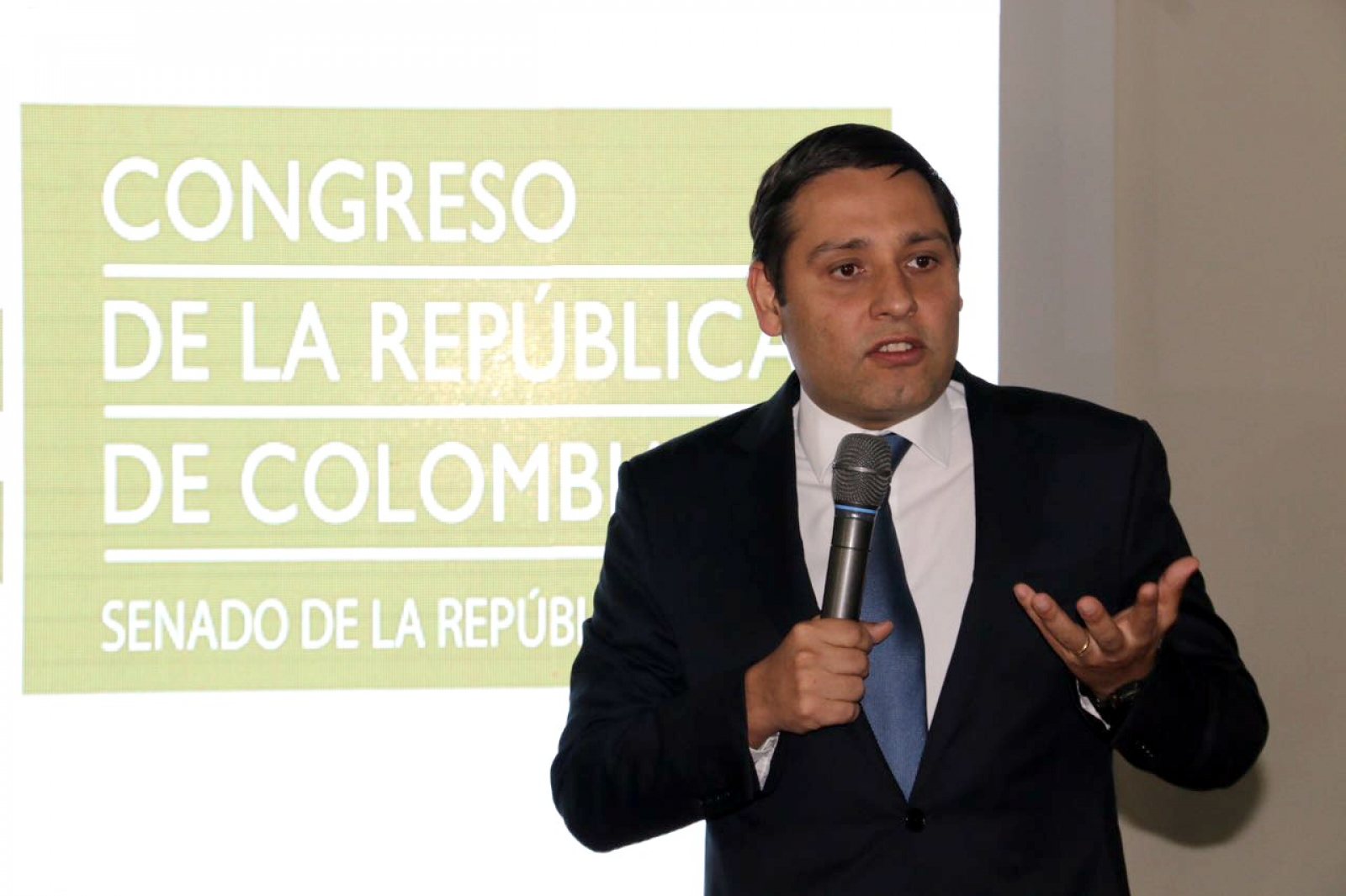
The President of the Senate publicly presents new smartphone application. (Credit: Natalia Albañil, Senate of Colombia)
SHARE
Colombia’s Congress has taken several steps to improve transparency and make legislative affairs more accessible to citizens in recent years. After Congress approved historic peace accords to end the longest-running internal armed conflict in the western hemisphere late last year, there is widespread public interest in how Congress will act to put the accords into effect with new legislation. On February 27, the Colombian Senate released a new smartphone application to allow citizens greater access to legislative information and improve transparency during Senate deliberations. This occurs just as both houses of the Congress begin to debate peace legislation under special “fast track” procedures.
The app, which is called “My Senate” (Mi Senado), allows citizens to participate in Senate sessions in real-time, including a feature allowing citizens to cast symbolic votes in favor of or against measures during debates. It also provides citizens with a range of tools that help empower informed citizen participation and engagement, including:
- a feature to livestream video of floor and committee debates;
- a list of senators, their voting histories, profiles, committee assignments, social media accounts and contact information;
- a list of laws pending upcoming votes;
- a list of political parties and their elected members;
- the latest press releases in the Senate; and
- a feature allowing users to send messages to the Senate’s Citizen’s Assistance Office.
“My Senate is the first application in the world that allows citizens to view Senators’ attendance and voting record in plenary sessions,” stated the President of the Senate, Mauricio Lizcano. “This is a measure to boost legislative transparency, as it allows citizens to find out firsthand how senators are voting on the most pressing issues facing the country and hold them accountable for their decisions.”
The application is the first product resulting from Colombian Senate’s Action Plan for an Open and Transparent Congress, an initiative led by Senate President Mauricio Lizcano. The Action Plan, which was designed with NDI technical assistance and in consultation with local civil society organizations, was announced last November and seeks to promote legislative transparency, accountability and citizen political participation. Senator Lizcano presented it internationally at the fourth global Open Government Partnership (OGP) Summit, which took place in December 2016 in Paris, France. Its signing made Colombia the third country in Latin America and the sixth globally to have such a plan.
The use of new technological tools and applications such as “My Senate” have the potential to open new channels of communication between citizens and members of Congress and help improve citizens’ understanding of legislative affairs. A recent study showed that 62 percent of Colombians are Internet users, and the Colombian Congress estimates that 70 percent of them access the Internet through their smartphones.
As the peace accords are legislated in Congress, the application provides an additional tool for these millions of Colombians to understand the contents of the accords and watch their members of Congress debate accord provisions. To support the application’s development, NDI facilitated a technical consultancy through the House Democracy Partnership (HDP), a bipartisan commission of the U.S. House of Representatives. The technical consultant, Stephen Dwyer, is the Senior Policy Advisor and Digital Director for the Office of Democratic Whip, Rep. Steny Hoyer and is well-versed in smartphone app development, as one of the key designers of Rep. Hoyer’s legislative tracking application, “Whip Watch.” Mr. Dwyer met with Colombian Senate staff and the technology firm that is developing the application for the Congress of Colombia, during which he provided feedback and recommendations to the design and functionality of the application. While not all of the suggestions were able to be accommodated in the first iteration of the app, it nonetheless represents a significant step forward in legislative openness for the Colombian Senate.
NDI’s assistance to Congress for these efforts is possible with funding from the National Endowment for Democracy, which has supported NDI’s legislative transparency programming in Colombia since 2014. The HDP exchange was supported by the United States Agency for International development.


